K-12 Virtual Program

Integrating music into classroom instruction provides a gateway to exploring and connecting across cultures. Music has always been a vital part of human expression. It has the power to engage, motivate and inspire students and builds bridges between both what is familiar and what is unfamiliar. The integration of music across the curriculum enables students to engage in rich textual analysis of diverse, interdisciplinary primary source materials, as well as further develop global competency skills such as recognizing perspectives and communicating across cultures.
World View’s Bridging Cultures with Music Across the Curriculum program will feature the story and music of musicians Abigail Washburn and Wu Fei. The program will also feature World View’s Global Music Fellows sharing best practice for integrating music across the curriculum.
Co-sponsorship by:
Schedule | Speakers | Concurrent Sessions | Program Materials
Schedule
| Thursday, OCTOBER 22nd | |
| 3:30 p.m. | Welcome
Charlé LaMonica, Director, World View, UNC-Chapel Hill
Barbara Stephenson, Vice Provost for Global Affairs, UNC Global
|
| 3:35 p.m. | Plenary Talk
Wu Fei, Classically-trained composer/guzheng prodigy, vocalist
Abigail Washburn, Grammy-winning singer/songwriter/clawhammer banjo player
|
| 4:10 p.m. | Break |
| 4:20 p.m. | Concurrent Sessions |
| 5:00 p.m. | Close |
Speakers
 |
Wu Fei became a guzheng master and multilingual composer of her own works assimilating avant-garde classical and folk music from around the world while retaining her own voice. Her commissions range from a composition for the Percussions Claviers de Lyon (France) that premiered in the Forbidden City Concert Hall in Beijing, to live performances in Paris and Tokyo for Hermès. Wu Fei has composed for Balinese gamelan, symphony orchestra, choir, string quartet, chamber ensemble, film, and modern dance. During this period, Fei toured the world extensively performing at some of the most respected museums, festivals and events. Her time in the States studying free improvisation led her to Boulder, CO where she would discover bluegrass music and meet Abigail. Visit Wu Fei’s website to learn more. |
 |
Abigail Washburn, daughter of idealistic, hardworking Midwestern parents from Evanston, IL wasn’t particularly musical as a child–that would come later. Abigail expected to become a lawyer with the goal of bettering US-China relations. Abigail has improved US-China relations with a banjo not with a briefcase, touring the world and releasing a number of records that mingle Appalachian and Chinese folk music. She is one of the few foreign artists currently touring China independently and regularly and her journeys include a month-long tour (Nov-Dec 2011) of China’s Silk Road supported by grants from the US Embassy, Beijing. Abigail, along with 24 other innovative and creative thinkers worldwide, was named a TED Fellow and gave a talk at the 2012 TED Convention in Long Beach about building US-China relations through music. Washburn is a Carolina Performing Arts, Andrew W. Mellon Foundation DisTIL artist-in-residence. Visit Abigail Washburn’s website to learn more. |
Welcomers
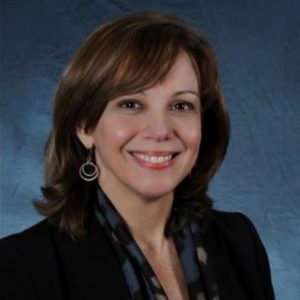 |
Charlé LaMonica is the director of World View. She works with World View’s Partners both on and off campus; forges strategic alliances and collaborations with schools, districts, and community colleges; leads the Global Education Leaders Program, and represents World View in NC and on the national and global stage. Her international career began as an educational outreach and research associate with the NC China Council of the Asia Society. Within the education arena, Charlé has vast experience working with students: she taught English and history in middle and high schools for more than 15 years as well as world history at the community college and university level. Her involvement in international business and education has allowed her to collaborate with those working in Asia, Europe, Latin America, and Africa. Charlé holds a master’s degree from UNC Charlotte and a bachelor’s degree from Boston College. |
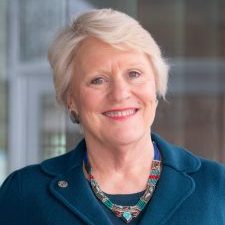 |
Barbara J. Stephenson is vice provost for global affairs and chief global officer at the University of North Carolina at Chapel Hill. She is a distinguished diplomat, former U.S. ambassador, international leader and prior dean of the Leadership and Management School at the Foreign Service Institute. She leads UNC Global and advances a pan-university global strategy to enhance UNC-Chapel Hill’s global reach, impact and reputation. Previously, Stephenson was president of the American Foreign Service Association from 2015-2019 and was a U.S. Foreign Service officer for over 30 years. She was a principal advocate for diplomacy, working closely with Congress, the media and globally engaged strategic partners. Stephenson holds a doctorate, master’s and bachelor’s in English literature from the University of Florida. |
Concurrent Sessions
| Session 1 (Grades K-5) | |
| Global Music in the Elementary Classroom | |
| Leslie Roberts, Music Teacher, Weddington Hills Elementary, Cabarrus County Schools | |
| Why teach global music? Let’s discuss the benefits of integrating global music into the elementary classroom, see examples of Wu Fei and Abigail Washburn’s music in action in an elementary music curriculum, and brainstorm ideas of how to implement global music into a general education setting. | |
| Session 2 (Grades 6-8) | |
| The Water is Wide: Connecting Cultures through Global Music | |
|
Karen Richardson, Middle School Chorus Director, Durham Academy
Katharine Zamarra, 7th Grade ELA/Social Studies Teacher, North Buncombe Middle, Buncombe County Schools
|
|
|
How can the story of a rebellious daughter written 1,000 years ago resonate with teenagers today? How can adolescents explore our shared humanity by examining lullabies from around the world? In “The Water is Wide: Connecting Cultures through Global Music,” UNC World View Global Music Fellows Karen Richardson and Katharine Zamarra will explore these questions as they walk participants through two multidisciplinary lesson plans focused on helping students bridge cultures through global music. Though the lessons were originally created for middle school music and social studies classes, they can be adapted for disciplines and ages from grades 5 through 12. Participants will walk away with lessons adaptable for their own grade level and subject area in a hybrid, in-person, or remote setting, and a few great songs to hum throughout the week. |
|
| Session 3 (Grades K-12) | |
| E = mc2 or Engaging Lessons = Music Cross Curriculums | |
| Joann Blumenfeld, EC and Science Teacher, Broughton High, Wake County Public Schools William Jung, Orchestra and Chinese Teacher, Millbrook High, Wake County Public Schools |
|
| Join two veteran teachers to learn tips for adding a global perspective to any discipline using music. Will Jung’s portion of E=MC2 will compare the similarities of folk songs from nations around the world and explore how the parallels in their lyrics and melodies allow us to see the connections between cultures. In the second half of the session, Joann will share strategies to learn how to integrate STEM with music and a global and cultural lens. |
Concurrent Session Speakers
 |
Joann Blumenfeld is entering her 20th year with Wake County Public Schools, where she teaches STEM classes at Broughton High School. She is adviser to the M&M Club: Makers and Museums, where students have a maker space and teach visitors at the NC Museum of Natural Science. Joann is also Founder and Program Director of Catalyst: Creating Opportunities in STEM for Students with Disabilities, located at the Science House at NC State University, serving students from over 20 high schools. Catalyst students won the Lemelson-MIT InvenTeam Competition, being the first-ever team at MIT with all students with disabilities to win for their invention, a low-cost mat that screens for lameness in cows with an App to notify farmers. Joann has BA and MS degrees in Science and Engineering. She has been a Kenan, NC Science Leadership and National Science Teacher Association Fellow and a World View Global Music Fellow. She has lived and worked overseas in Asia and the Middle East and loves to travel and spend time with her family. |
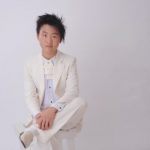 |
William Jung is a Chinese and orchestra teacher in Wake County Schools. Will was a 2019-2020 World View Global Music Fellow where he wrote curriculum to compliment the album Wu Fei & Abigail Washburn. He holds a Bachelor of Music degree in Music Education and a minor in Chinese from UNC-Chapel Hill. In addition to teaching orchestra and Chinese, Will is also an active composer and is deeply involved in the field of marching bands, where he is a show designer, music arranger, and drill writer. Before working in Wake County Schools, Will taught band and marching techniques in China as part of the DCI China Fellowship. He enjoys using his study of Asian folk and pop music as a catalyst to create engaging lessons for his students as well as arrange new pieces for them to perform in order to broaden their aural scope of music. |
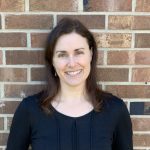 |
Karen Richardson teaches middle school chorus at Durham Academy in Durham, NC, where she is also a seventh-grade advisor. Originally from Toronto, Karen earned her undergraduate degree in voice and music education in Canada, and completed her master’s degree in music, with a specialization in Kodály music education, at Colorado State University. Over more than two decades of teaching, she has been a Montessori classroom teacher at various age levels and has taught K–8 general music, choir, and ukulele. Karen believes that music is for everyone, that it helps us to connect to our shared humanity, and that every child has the right to a good music education. She was a 2019–2020 fellow in World View’s Global Music Fellows Program at the University of North Carolina, and one of her lesson plans was chosen by Smithsonian Folkways to accompany the release of the cross-cultural album “Wu Fei & Abigail Washburn.” She loves to spend time with her family, go to concerts, travel, read, garden, cook, and be outdoors—where she is attempting to hike all the peaks over 6000 feet in the North Carolina mountains. |
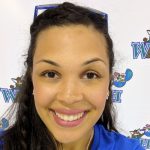 |
Leslie Roberts is in her 10th year as the general music teacher at Weddington Hills Elementary School in Concord, North Carolina. As a product of Cabarrus County Schools, she strives to encourage the love of music in her students at the same school and in the same community where she gained her love of learning. Leslie received her Bachelors in Music Education from the Hayes School of Music at Appalachian State University in 2010 and she helps lead her community as the president of the Piedmont North Carolina Chapter of AOSA (American Orff-Schulwerk Association) for the past 6 or 7 years. Leslie was a 2019-2020 World View Global Music Fellow. |
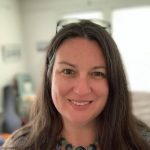 |
Katharine Zamarra infuses global and arts-centered education into her 7th Grade Social Studies classes at North Buncombe Middle School, in western North Carolina. She pursued the teaching profession after encountering an 18-hour Chinese opera that inspired her to move to China. After teaching and working in Asia for seven years–including two years in Thailand—Katharine returned to Asheville. She holds a Global Educator Digital Badge from NCDPI and has participated in a Fulbright-Hays Group Project to Oman and Zanzibar, a National Endowment for the Humanities summer seminar, and a Gilder Lehrman summer teacher seminar. She was also a World View Global Music Fellow, focusing on the intersection of Chinese and American music. |
Program Materials
Office of the Vice Provost for Global Affairs |
 |
 |
In-kind support provided by:

North Carolina Department of Public Instruction Global Education
